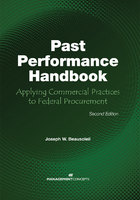A Day int he Life of You ( AND HOW YOU GOT TERE)
It all started on a sizzling hot day in July 1988. The mail carrier walked into my office, looking burdened by the heavy gray sack on his shoulder and the promise of the U.S. Postal Service letter carrier patch on his sleeve: his pledge to deliver in rain, sleet, snow, and eighty-five-degree temperatures. In this case, he was also delivering my first Career Rage letter.
Addressed to "Ask Andrea," as my column was called back then, my first piece of mail thrilled me. Someone had actually read what I had to say! "They're probably writing to thank me," I thought. "How nice to be appreciated." I gently slit open the top of the number-ten envelope and unfolded the two-page typed letter inside.
"Dear Andrea, What planet do you live on?" it began. It went on: "What kind of moron would advise people to negotiate their salary? You have to take what you can get if you want to get anywhere. As you sit there in your ivory-tower office making the big bucks, perhaps it would help if you got a dose of the real world." The writer then told me about his real world. I'd go on, but you get the picture.
In my world, I was collecting zero dollars per column for the privilege-which it was-of writing approximately 650 words in the newspaper. The editor had told me, "Let's try it and see how it goes."
The letter really bothered me at the time, but that was 20 years ago. Compared to the mail I get today, that was a love letter. Many of the issues people write about now are similar; some are brand-new. But I must say you do seem madder in the last ten years. Today, it's more like foaming-at-the-mouth, seething outrage.
This outrage rears its head in the most unlikely of places. In 1998, my second book, which was about resumes, had just come out, and I was giving a talk at a bookstore. A man in the back of the standing-room-only audience began heckling me. People started shifting uncomfortably in their seats as he went on his verbal rampage. A few people stood up and began circling the man. I scouted the audience for some brawny security-guard-looking types, but there were none. After all, who heckles the author of a harmless resume book? One really upset worker, that's who.
It's not that the relationship between you and your company or boss has ever been a bed of roses. In fact, people were not only throwing fits about working conditions back in post-Civil War days, but they were killing each other over them. Let's take a quick look at what came before you, to better understand how you and other workers got to such an angry place today. Even if you don't like history much, stick with me here. This will help you get to the next part-the part where you can turn your wrath into something more productive.
Quick History Lesson
Back in the late 1800s, when mass production was developing, work became more dangerous, was often monotonous, and was often carried out under harsh conditions. It was then that some nasty events took place, says James McBrearty, economics professor at the University of Arizona's Eller College of Management. Some of the highlights of the era were the Molly Maguires, who were upset about bad working conditions and who intimidated, beat, and killed mine owners in the anthracite coal mines of eastern Pennsylvania. Then there was the Great Railway Strike of 1877, in which workers protesting a wage cut were killed, and federal troops were called in. There was Chicago's Haymarket Square Riot, where workers were striking for an eight-hour day; someone threw a bomb into a group of policemen who were trying to break up strikers, and several people were killed.
And if you think working long hours is a recent phenomenon, until the early 1920s steelworkers worked twelve-hour shifts six days a week.
In the early 1900s, unions came into power, says Tom Chacko, professor and chair of management at Iowa State University. The relationship between workers and management succeeded in some cases and didn't in others. In 1956, when the number of white-collar workers surpassed the number of blue-collar workers, America became more of a white-collar nation, according, once again, to Professor James McBrearty. Workers often thought they would move up the socioeconomic ladder-or that at least their children would be able to. And that is what many people saw as the American Dream. More on that later.
Which brings us to today.
Today our economy is based on delivering services rather than manufacturing products. Unions, which negotiate wages and benefits for their members, don't have the numbers or the clout they used to. Since 1980, unions have lost nearly 5 million members, says Gary Chaison, professor of industrial relations at Clark University. In the 1950s, unions represented 35 percent of workers. Today it's 12 percent.
Today, workers are faced with what those in labor and management circles call "givebacks"-a term that refers to wages and benefits employees have but management wants to reduce or take away entirely. Things like health care and pension plans. Of course, as you may have experienced, this is also happening to workers who don't have unions backing them.
Although you may never have worked for a company that fit this exact description, until the mid-seventies companies generally had a paternalistic view of their relationship with workers. Companies took care of workers through benefits, and workers basically had a position with the company as long as they did a good job, explains Professor James McBrearty. It was "a fair day's pay for a fair day's work, including decent fringe benefits, of course," he says, "symbolized by the likes of IBM." Companies like IBM took care of people from womb to tomb, he says. "IBM never laid anyone off for lack of work. They might make you take a different job with them and you may have to relocate. But they took care of you. You had job security, health-care programs, and pensions fully paid for by the company. Life was good!"
The shift away from this became more pronounced in the early 1980s, with the sharp recession of '81/82, McBrearty explains. But the view of what work is supposed to be and how people want to be treated hasn't really changed. The work relationship is one of exchange, says Professor Tom Chacko. The worker gives his or her time, talent, skills, knowledge, and education. And the employer provides an interesting place to work, a salary, and bonuses. But when one party feels there's an imbalance in the relationship, they sever the relationship. (Or, as many of your letters to me say, you're so mad about how the relationship is playing out, you want to get the hell outta wherever you are.)
As the employer is putting more of the onus on you-everything from figuring out your career path to covering your own health insurance-that balance keeps getting, in your eyes, less balanced. Your letters tell the story this way:
· "I give my all, then get laid off-three times now."
· "They expect me to answer my phone at 2:00 in the morning, in case the client has a problem."
· "They're bringing in someone from the outside instead of promoting from within."
· "My work isn't fulfilling."
· "My boss doesn't give me feedback. I don't know where I stand."
· "I should get promoted, but they won't give me anything concrete about how to make that happen."
· "I'm disappointed by the lack of creativity in my job. My time is consumed with meetings and conference calls."
· "My best skills aren't being used."
What do all of these remarks have in common? Something is not fair. The balance is way off. Any trust that did exist is evaporating or gone. You entered the work relationship thinking, "You, the employer, are going to give me certain things in exchange for what I do as well as I can." Remember the "fair day's pay for a fair day's work" concept? As Chacko puts it, "As long as there's mistrust, nothing works."
Factor in the feeling you're being lied to, and it gets even worse. I keep a file called "Lies My Company Told Me." Tucked away in it are the things clients tell me and the things readers who work in companies or are job hunting write to me about. Here are some samples:
"Lies My Company (or Potential Companies) Told Me"
· "They told me I'd get a review at the end of the year. That was two years ago. Never happened."
· "My boss told me we'd meet to discuss [fill in the blank] and he's cancelled the meeting every month now for the last year."
· "They told me I'd be doing one job and traveling only once a month. It's not the job they hired me for, and I'm gone three weeks out of the month."
· "They said they'd get back to me in two days. That was a month ago, and they won't return my calls."
· "They told me I'd have an office, and a year later I still am in a cubicle."
· "I trusted them with my pension. Now, twenty-five years of savings is all gone."
· "Their mission statement says they care about people. Two of my co-workers landed in the hospital last week. One had a heart attack. They couldn't care less if I drop dead, as long as they make their numbers."
Notice a trend here?
Of course the lies, perceived unfairness, and broken contract of the relationship between workers and companies create stress. It's enough to age you prematurely. In fact, if you want to see just how working in a stressful office environment can age you, go to a Web page created for that sole purpose. It's called Age-O-Matic.com, and it promises to help you "find out what your soul-sucking job is doing to you." You upload your photograph, and then, to measure how bad things are, you pick answers from such multiple-choice selections as "I'd rather eat maggots, sleep with a hippo or get an eyeball tattoo than work."
But many people stay put because they see no way out. In the book Toxic Work, author Barbara Bailey Reinhold reports that "an estimated twenty million Americans are staying in jobs they hate in order to keep their health insurance-when research indicates that career dissatisfaction is more likely than anything else to make them need to use it."
To be fair, some companies do appreciate their workers-and show it-and their workers appreciate their jobs and employers. Fortune magazine's 2008 list of "100 Best Companies to Work For" offers examples of such mutual admiration between management and employees.
Take the number-one-ranked company on Fortune's list, Google, a company that continues "to mint millionaires as the stock cracked $700," according to Fortune. But it's not just giving stock options to workers that helps land a company on the list. The online mortgage lender Quicken Loans was number two. Described by a worker as "ethically driven," the company avoided the subprime crisis "by sticking with lower-risk, traditional loans," says Fortune.
Genentech, ranked number five, is known for its perks, which range from doggie day care to an on-site farmers' market. Number-eight-ranked Qualcomm, headquartered in San Diego, is quadrupling the size of its popular on-site primary-care clinic. Accounting firm Plante & Moran, ranked forty-fourth, encourages employees to bond, and last year over twelve hundred workers (that's 80 percent of all employees) gathered together to "amp it up."
General Mills earned sixty-ninth place, in part because of its formal phase-back to work following a leave-of-absence benefit. King's Daughters Medical Center in Ashland, Kentucky, ranked sixty-third, with such benefits as on-site child care, subsidized gym membership, adoption aid, job sharing, compressed workweek, and telecommuting.
But a company doesn't have to be large to be a great place to work. Planet Dog, developers of innovative, premium products "made for dogs, by dog lovers" based in Portland, Maine, was named one of America's Best Places to Work in 2008 by Outside magazine. Ranked second in the small-sized category, they only have 44 employees, not including the 30 dogs that accompany their owners to work. It was recognized for providing a great work environment that not only allows for quality of life and balance, but that also promotes environmentally friendly business practices. (More on other such companies that didn't make Fortune's list in Step 5.)
But the news isn't so cheery at many other organizations-maybe yours.
For starters, you may have lost trust in your institution because of some naughty executives involved in illegal dealings or shady financing. Many say this perceived trend of increased bad behavior is based on a lowering of ethics due to deregulation or the way executives are compensated. But the point is, you got screwed.
Or, because of broader issues companies face or choices they make, your career has been damaged, derailed, or deported to another continent. Due to competitive pressures, your company may have merged with another firm, been acquired, or gone bankrupt. Perhaps the industry you've worked in has totally evaporated or been replaced by automation. Maybe your benefits have been reduced or your salary hasn't kept up with inflation.
Whatever the issues are, if I could sum up your general reaction, it would go something like this: You're mad as hell, and you don't want to take it anymore. Am I close?
To help you vent I've provided this space for you to get it off your chest. Go ahead, fill it in.
I'm mad because:
__________________________________________________________
__________________________________________________________
__________________________________________________________
__________________________________________________________
__________________________________________________________
__________________________________________________________
Many of my clients and readers are relieved to learn that they are not alone in feeling this way. So let's look at what your colleagues have to say.
You're Not the Only One Who Feels This Way
For the record, let me say that I am certain I haven't covered every issue you're upset about. I've tried to touch on the ones I hear about most often, that come up again and again, and that seem to have the greatest impact on people in today's workplace.
You're going to have to figure out how to deal with some issues yourself. Like the fact that nearly 60 percent of workers surveyed by CareerBuilder said they experience road rage during their office commutes. It does make me wonder whether people are getting in their cars and yelling, honking their horns, and giving obscene hand gestures because they're mad about their careers. Nevertheless, some self-control would be nice.
Also, for the record, let me say that life in this day and age is not easy. Besides work, people feel stress from information overload, family responsibilities, illness, money, and too much stuff to do, to name a few. These concerns are compounded by workplace problems such as:
· Losing your way of life after working for a company like General Motors or Ford for decades
· The prevailing hiring practice of "employment at will"
· Feeling bad about the work you produce because you're asked to compromise quality so the company can make more money
· Business decisions that are focused on the short term at the expense of people and doing good work
· Being turned down for jobs because you're not bilingual
· Corporate untouchables who seem to get away with anything
Here, in your words, are the things you've told me make you red in the face with fury, and, in some cases, ready to resign your hopes and dreams. This is your section to bitch and moan. Enjoy it while you can.
You're pissed because:
"I HAVE NO LIFE."
Over the last five years, a growing number of workers have been telling me they feel pressured or are required to be plugged into their company 24/7 by way of beeper, BlackBerry, or phone.
You don't need a survey to know this. Just have a meal with someone who makes himself available at all times, even if it's not required. His cell phone starts humming, ringing, or vibrating on the table while you've barely started your salad. But to drive the point home, let's look at a couple surveys.
In a 2006 survey conducted by Korn/Ferry International, 81 percent of more then 2,300 global executives said they are connected to work through a mobile device such as a cell phone, PDA, laptop, or pager all of the time. Another 2006 survey, conducted by Hudson, found that workers are clocking in when they should be tuning out. At the end of the year, nearly 25 percent of those surveyed hadn't taken any vacation time. When workers do go away, 72 percent of them connect with the office; 87 percent of managers stay in touch to some extent when they're supposed to be unwinding; and 38 percent of workers and managers said they return from vacation no more relaxed, or even more stressed, than when they left, as a result of work they missed.
In "Extreme Jobs: The Dangerous Allure of the 70-Hour Workweek," published in the Harvard Business Review in 2006, the Center for Work-Life Policy reported that 35 percent of high-income earners work more than 60 hours a week; 10 percent work more than 80 hours. The research revealed that 60 hours or more of work per week is often spent on activities that require tight deadlines, attending work events outside regular work hours, being available to clients twenty-four hours a day, and/or large amounts of travel. Over two-thirds of the workers studied do not get enough sleep, and half don't get enough exercise. Their sex lives, their ability to have strong relationships, and their relationships with their children also suffer.
Or take my client, the poster child for the Worker Who Has No Life. He is asked to travel three weeks out of the month while managing a global organization of hundreds of people. He takes calls from clients and managers six to seven days a week, until 1:00 a.m. (He's not officially required to do this but feels he must.) He was on the verge of a breakdown, couldn't sleep, and complained of his heart pounding so fast that sometimes he couldn't catch his breath. I couldn't convince him to take even one day off to see the doctor and chill out. He felt it would be more stressful to have to return to the phone calls and e-mails that would await him.
I have lost count as to how many people tell me they are craving control over their time. It gets to be more every year. And just as many ask me: Isn't part of the purpose of work to make it possible to enjoy life? What life?
You're pissed because:
"MY BOSS IS AN INCOMPETENT IDIOT/JERK."
There have always been idiot and incompetent bosses. Are there more nowadays? Is it harder to get rid of them? Do companies put up with worse behavior? Your letters seem to suggest as much.
OK, let's start by looking at what a 2006 Hudson survey found: Only 67 percent of employees rate their managers favorably, while 92 percent of managers consider themselves to be excellent or good bosses. Surprised? Probably not. Part of the reason managers don't know how folks really feel is that only 26 percent of the workforce is ever given the chance to formally review their managers' performance, the survey found. And unless there is a way to keep their managers from knowing who said what, most workers I know aren't going to take the risk of telling their managers what they really think.
When some workers who weren't too thrilled with management did make their feelings known on the company bulletin board, they felt the sting of retribution. The workers wouldn't even identify themselves or their place of work in the e-mails they sent me-for fear of more retaliation. But apparently someone posted a column I wrote about how people feel about their bosses for all to see.
"It created such a stir-all the managers took it personally and were very offended," writes one of the workers. One manager called each employee into the office or on the telephone "asking if we knew who put it on the wall. He did this after telling people it was 'insubordination' and that 'employees will be fired.'"
"There are simply times when an asshole must be called such to his or her face."
-Amy in Washington
Amy wrote me after reading a column I wrote on how to handle rude employers with tact and diplomacy. She described my column as "all in all, a good article expressing valid points of view and courses of action to be taken by employees when faced with the overbearing pompousness all too common in the American workplace."
But, she continues, "There are simply times when an asshole must be called such to his or her face. Due to the corporate strategies allowed to run rampant in this country…workers are intimidated, lied to, manipulated into unsafe environments, suffer privacy violations, and bullied…by employers who think that just because they can offer a job to someone, they have the right to play God over that person inside and out of the company. I personally choose not to commit violence, but I will honestly tell you that I fully understand those who do!"
"They sent him to Kellogg School of Management for a week. It will not do any good, because he cannot be trained."
-Sam
Sam and his wife work for a large government agency. "We both pride ourselves on our work. However, we have the prototypical idiot boss. He lacks basic intelligence, has limited reasoning abilities, no common sense, and cannot absorb new information.
"Last week it took him 15 minutes to change the bag in the shredder, five minutes to fail at opening the plastic bag and then ask for my help, and another ten minutes to fit the bag on a frame and put it back in the shredder…They sent him to the Kellogg School of Management for a week. It will not do any good, because he cannot be trained." Sam says even though the agency prides itself on doing excellent work, it allows such ineptitude to exist because "it is less work to let him flounder than it is to demote him."
My column described the biggest frustration people report having at work as "idiot bosses." Definitions ranged from "not having a clue as to how to do their jobs" and "not being able to solve problems when you come to them with issues" to "being insensitive to people around them." Accounts of insensitivity include a manager who berates employees in front of others to exert power, and a supervisor who subjects her staff to daily details of her in vitro process.
One of the workers who wrote me, referring to one particular manager, said, "Rather than taking a look at himself and perhaps not wanting to be the type of manager in your article, he has made the situation at work unbearable [and] many of us do not want to continue working there."
In my own very unscientific poll, which I conducted on my Web site, I asked the question, Have you become more frustrated and angry at work in the last year? Everyone who responded said yes. Fifty percent said it was because their boss was an idiot.
Some disgruntled employees hate their bosses so much that they write disparaging things about their dead bosses on the Web site Legacy.com, which carries death notices and obituaries.
"I had to listen to [the details of] her sex life."
-Kathy on the East Coast
"My so-called manager loved to belittle me and the other women in the office in front of other people; it made her feel powerful. To top it all off I had to listen to [the details of] her sex life [after] her boy-toy would come over every weekend."
You're pissed because:
"I TRIED TO DO THE RIGHT THING, BUT…"
It seems quite a few people have discovered irregularities at their companies. They involve financial records or safety, environmental, or ethical violations. Many who speak up are branded as (the nice name) whistle-blowers. The not-so-nice names? Tattler, rat, snitch.
Those who reveal company violations are often discredited, says James Helmer, a Cincinnati attorney. "The company will overturn every rock it can to dishonor you and paint you as the worst employee they ever had." Companies file counterclaims against workers who go public, charging defamation. Some people lose their work friends. A former New Jersey worker who complained about unethical practices at the company reported in a Wall Street Journal article: "It's like I've got the bubonic plague."
Others get demoted or are forced out of their jobs after the company tries to discredit them. A woman who worked as a zookeeper spoke up when a co-worker was attacked by a bear, and she told me she was demoted the next day. When she refused the demotion, she was suspended without pay.
This despite the fact that people in the organization and society are probably better off as a result of someone's speaking up. "Loyalty is more highly valued in business than in any place but the Mafia and the military (where followers in both must be prepared to kill for the boss)" writes Michael Lewis in The New York Times Magazine.
Whistle-blowers are supposed to be protected by law. When I once wrote about a government bill being passed for whistle-blower protection, I heard from Ron, who said, "Hell, I work for the federal government, and I'm scared to report any wrongdoing for fear of reprisals."
"When I asked my boss for guidance, he instead fired me and kept the thief."
-Anonymous e-mailer
"As the manager of a retail shop, I wanted to fire a worker who was stealing hundreds of dollars in cash and merchandise every week. When I asked my boss for guidance, he instead fired me and kept the thief. When another worker protested the thief being allowed to continue work, that worker was told by my boss he did not care how much the thief stole, and if she didn't like it she could leave."
You're pissed because:
"THE COMPANY CHEATED AND STOLE FROM US."
A couple of years ago I started cutting out news stories about the shameful things occurring at companies and trusted institutions. I'd find an article about an ousted official here and there. A leader of a company accused of sheltering taxes illegally or employing creative accounting. A CEO convicted of fraud or tampering with something he wasn't supposed to be tampering with being led out of the company in handcuffs. An analyst who failed to disclose stock deals or who publicly recommended buying stocks he privately ridiculed. An inquiry or investigation into a company's shady bookkeeping practices or an executive accused of stealing millions. The pile of articles got so big that it became a fire hazard, so I had to stop collecting them.
It's no wonder WashingtonPost.com referred to the business pages as reading "like the crime blotter." One ticked-off reader of my column put it this way: "Leadership isn't black-and-white-it's green."
No one knows for sure how many scandals and management fiascoes have occurred in the last five to ten years, or if it really has gotten worse or just seems that way (more on this in Step 1). But I, for one, do know that hardworking people have had to bear the brunt of bad, uninformed, or, in some cases, corrupt and criminal managers.
The subprime mortgage market crisis that began to unfold in 2007 is one example of "leaders who are paid first and foremost to manage risk" who "have been caught either unaware or uninformed about giant risks their companies took," writes Jenny Anderson in The New York Times. "Never in the history of Wall Street have so many who are so senior fallen so fast."
And just as upsetting is that workers have become so cynical and distrustful, having lost their faith in the workplace and the integrity of corporate leaders. They don't feel they can believe in anything. And people need to believe in something.
You're pissed because:
"COMPANIES DON'T CARE. THEY TREAT US LIKE INVENTORY."
According to USA Today, on August 29, 2006, four hundred workers at RadioShack received an e-mail stating, "The workforce reduction notification is currently in progress. Unfortunately your position is one that has been eliminated." The company spokesperson said officials had told workers in a series of meetings that layoff notices would be delivered electronically. But still, what were they thinking?
Another article in USA Today talked about a British store clerk who was fired by text message. I don't even know how to retrieve a text message, but I know it's not a good way to tell someone he just lost his job.
"I am a victim of getting rid of excess fat."
-Fred in California
"I have worked through two companies' bankruptcies. I am a victim of getting rid of excess fat in the company to save money. At 17 years with the company I was the highest paid in my field. I was eligible to retire in two years. Unfortunately, I encountered some bad management that was in the business of saving money. One of the biggest ways to save is by eliminating a senior employee."
Sometimes companies have to make tough calls. Even governments lay people off. In January 2007, the Libyan government announced plans to lay off four hundred thousand people-more than a third of its workforce-to ease budget pressures and stimulate the private sector.
"It is the employers who have forced their employees to multitask in order to save money."
-Nancy
Nancy e-mailed me in response to a column I wrote on multitasking: "I wish you had directed this toward the employers rather than the employees. In my experience over the last 15 years it is the employers who have forced their employees to multitask in order to save money-eliminating one person's job and splitting it between one or two other people who already have enough to do."
"It's like the company wants him to die and just go away."
-Paula in South Carolina
Paula wrote me about her 77-year-old father, who had worked for a large retailer for 13 years. After he suffered a heart attack at work, he was rushed to the emergency room. His employer told Paula "that he would not only have his job when he returned but be allowed to transfer to a store closer to me, where he moved in after his surgery. After three months' leave, the company said they didn't have a job for him at this time; 'sorry, we cannot help you.'"
She goes on to explain that the managers have said to her father, "Can't you make it with your Social Security? You really don't need to work, do you?" Paula adds, "It's like the company wants him to die and just go away."
It's never easy to lose your job, even when circumstances are beyond anyone's control. But after it happens to you a few times or you get treated so poorly in the process, it makes you cranky.
You're pissed because:
"WE WORK HARDER AND GET LESS, WHILE CEOS KEEP MAKING MORE."
It's not that companies shouldn't profit and CEOs shouldn't make good salaries. But it's a hard pill to swallow when, well, you feel you're working your tush off and getting less for it, and-even though it's not fair to generalize-you read about executives who bilk their companies and leave workers high and dry or walk away with millions in severance packages after losing gobs of money.
As I mentioned earlier, many CEOs earn more money in one day than the average worker earns in a year. And while employees are working hard to help create the most productive economy in the world, in many cases they are getting less in the way of benefits while companies' earnings soar and some CEOs' make tremendous salaries without being tied to performance.
This doesn't seem to be changing. One headline, for a 2007 ExecuNet newsletter about trends for the year, read, NEW WAR FOR TALENT YIELDS BETTER PAY PACKAGES.
The article goes on to say that with executive talent in high demand for the fourth consecutive year, companies will continue to add more incentives, including bigger bonuses, to their compensation packages to lure top talent from competitors and keep key leaders from walking out the door.
On January 8, 2007, The New York Times reported that "Robert L. Nardelli's unceremonious departure from Home Depot may spell the end of the era of supersized pay packages for chief executives of public companies, but a new refuge for lavish compensation and private jets is emerging elsewhere." It went on to say that businesses owned by private equity are now offering "compensation on a previously unimaginable scale to the chief executives who run the once-public companies that the firms have bought out" and that the "imperial chief executive officer is still very much alive and well in the private realm."
So, what's it like for the average worker? Incomes have been stagnant for most workers since 2000-except for those at the top of the wage distribution, according to the Economic Policy Institute (EPI). Wages simply haven't kept up with inflation. Since 2000, the typical working family's income has fallen 5.4 percent after adjusting for inflation, representing a three-thousand-dollar loss in annual income, the institute reports. Many workers write me to say, "I feel like no matter how hard I work, I can't get ahead."
I hear from people in various professions about this issue. But to use one example, let's look at teachers' paychecks. A 2006 article in The New York Times discussed an American Federation of Teachers survey of teacher salary trends. It found that the average teacher's salary increased by only $1,000 from 1994 to 2004, with the average annual salary for teachers being $46,597. For the first time since 1982, teachers' salaries on average were less than those of government workers.
Extreme income inequity is only part of the issue. People are also frustrated at having to shell out more money from their paycheck to pay for health care. Granted, the cost of employees' health care has gone up drastically. Starbucks spends more on health benefits than on coffee beans.
"As long as everyone's wages are rising and the standard of living is going up, tolerance for certain people making what might seem like rapacious pay packages is higher," says Ross Eisenbrey, vice president of the Economic Policy Institute. "But when times are bad and people see these giant severance packages and $40 million golden parachutes for CEOs leaving companies after they've lost billions, they resent that."
Health-care coverage through an employer has declined from 61.5 percent in 1989 to 55.9 percent in 2004, according to the EPI. And those of you who do get coverage are paying a larger portion than ever before, with your share rising from 14 percent in 1992 to 22 percent in 2005, says the EPI.
Health policies introduced by the Bush administration in early 2007 don't help the problem, says Elise Gould, an economist with the EPI. The policies "are about shifting risk onto the individual. As the employer market erodes, more individuals must seek insurance on their own if they want any kind of health security. Those unlucky enough to be unhealthy today or to get sick tomorrow will find it very difficult to find affordable insurance in the private market," Gould contends.
Even an economic boom-when stocks are doing well and corporate profits are high-doesn't necessarily benefit all workers. As the EPI points out, how important is the Dow Jones Industrial Average to the average person? "Fewer than half of Americans own any stock at all, and the richest 20% of the population owns 90% of all stock market wealth."
You're pissed because:
"THEY THINK THEY OWN US."
Yes, companies can and do monitor e-mail, phone calls, and, in some places, more. Some even track workers' whereabouts via the Global Positioning System. While many companies have legitimate and legal reasons for doing this, it certainly doesn't build trust. Such tactics also tend to generate angry workers, who feel they have fewer rights and more rules that impinge on personal choice.
One reader of the Stanford University Web site, the Stanford Daily Online, upset about employer practices that dictate what employees do in their off-hours, commented that after the eight hours spent at work, "The rest of our lives belong to us."
Some people are peeved about organizations that dictate what they can display in their offices and cubicles. Such companies include the Hearst Corporation, which limits personal knickknacks and vacation photos in its offices in Manhattan, according to a New York Times article. Hearst's policy "specifies limiting 'the amount of personal items, stacks of paper and other materials'" and "bans carrying in 'furniture or lighting without prior approval.'" At Calvin Klein, executives "decreed there could be no desktop displays of photographs, mementos, toys, awards, plants or flowers, other than white ones."
Such policies have apparently spread in the last decade. The Times article cites a 2006 Steelcase and Opinion Research survey that "found that only 40 percent of companies encourage employees to personalize their work space." A decade ago, that number was 56 percent.
Job hunters are pissed because:
"COMPANIES TREAT US LIKE CRAP."
Job hunters aren't feeling so great about their treatment in the job-hunting world, either. Whether they're hourly workers or executives, the consensus is, "companies treat us like crap." Complaints range from receiving bad references from former employers to getting bad interviewers. The number-one complaint? "No one gets back to me." It doesn't matter whether you applied for a job electronically or by mail or had an actual interview-there's silence on the other end.
Being a job hunter can be lonely. It gets lonelier when you reach out and there is dead silence. But really, what can you expect if you're communicating with a computer? Even so, impersonal process or not, a response would be nice.
There was a time when you sent off your resume to a search firm or employer and you could "pretty well count on getting a letter back, even if it simply said, 'Thanks, but we don't have anything,'" says Dave Opton, CEO of the online executive career site ExecuNet. Of course, that's all changed. Now that you can send out hundreds of resumes via your computer, "the recruiting world is overwhelmed," says Opton, and, even with autoresponders, "from the job seeker's perspective it is just a big, black void in cyberspace. Or best case, they feel they get a response that is only a half-step removed from 'Dear Occupant.'"
This, he says, is especially true for seasoned executives who haven't been shopping for a job in a long time and whose "expectation and experiences belong to times that are no more. It is a real shock and a deep disappointment."
"No phone call, no postcard, not even a mass e-mail saying 'no, thank you.'"
-Doug in California
"Employers think nothing at all about simply ignoring the job seekers…No phone call, no postcard, not even a mass e-mail saying, 'no, thank you' to the ones who spent gas, money, and time coming in…When employers discover that they're winding up with people who treat them just as the employer treated them in the hiring process-for example, by leaving a job with nary a day's notice-perhaps things will change."
One job hunter told me the highlight of his week was the day he got a response from a company he had contacted about a position. The letter had the typical rhetoric: "Thank you for your interest in our company. Although we don't have an appropriate opening for you at this time, we would like to keep your information on file." He was overjoyed just to know that someone had taken the time to acknowledge him.
Besides being overwhelmed by the volume of responses they receive to job postings, some companies don't manage the interview process well, says Louise Kursmark, owner of Best Impression, an executive resume service. In a survey she conducted of her clients and others, she found that, on average, 66 percent of candidates received one response to every ten job applications they submitted. And they weren't "blasting their resumes all over the place," she says, but carefully selecting jobs for which they felt they were well qualified.
Fifty percent of her respondents also said the company had actually done something during the interview process that made them decide they would never work there. Half said it had to do with how they were treated, including being kept waiting or shown a lack of respect. Respondents also complained of interviewers being disorganized, unprofessional, or confrontational and taking phone calls, glancing at e-mail, or allowing interruptions during the interview.
Then there's job hunters' rage over "digital dirt digging." This practice of employers and recruiters using search engines such as Google to dig up information about a job applicant is seen at best as unfair, as expressed by this woman in an audience I spoke to, who asked me, "What do you think of these employers who search the Internet for information on you, then use it against you?"
Others see this practice as unethical, even illegal. The editorial board of Stanford University's Stanford Daily Web site posted comments to that effect, referring to employers who use Facebook.com, a site "expressly set up for personal, non-commercial use," and whose "popularity lies in its ability to foster a vibrant online community that taps into our society's confessional culture."
"Some of these jerks…believe they should continue to torment employees even after they've left the company, by means of horrible references."
-John
"I'm the one they're asking to invest a significant portion of my irreplaceable time into improving their bottom line. I've worked for more than my share of jerks…Some even believe they should continue to torment employees even after they've left the company, by means of horrible references, or interference with unemployment benefits."
"The feeling is anger, which is white-hot and molten."
-Walter in Connecticut
Walter, who describes himself as a "high-tech American" with several college degrees and more than a decade of experience, wrote: "I have been seeking work continuously since 9/11. Over 239 weeks since my last paycheck…unemployed because my employer's facility in the World Trade Center burned on the evening of 9/11. I am a victim of offshoring since that crime. The feeling is not a mere lack of rationality. The feeling is anger, which is white-hot and molten."
The board members concede that while employers can Google you, surf your Web site, and read your blog, and "such extensive background checks are distasteful, they are not illegal. This information is public and freely available to all, including nosy corporate recruiters." But, says the site, dredging up private information on Facebook is unethical.
An older generation of workers also has cause for concern about the use of digital dirt digging-even though it may not involve the embarrassing photographs or public nudity that some Web sites feature. ExecuNet's 2006 research revealed that more than 35 percent of executive recruiters who used the Internet to research candidates eliminated someone from consideration based on information they uncovered online. That figure is up from 25 percent in 2005.
And while we're on the subject of older workers, let's not forget discrimination. Employers have biases about all kinds of things, including age-even with the available number of workers shrinking (this does seem to be changing, though; more on that in Step 6).
Many older workers believe they have been discriminated against, and many more older workers who haven't yet run into such treatment expect it to happen to them. Other times it really happens. Disenchanted at 54, Robert Aspland summed up the feelings of many older workers when he was quoted in a New York Times article about American workers flocking to job fairs for skilled workers looking to work for Irish companies. For someone like him in America, he said, "getting a full-time job with benefits that also pays a living wage is like a pipe dream…these days."
Summing up the feelings of so many older job hunters, Sharon, who is trying to find work in the southern United States, wrote, "Very few employers know the difference between an educated, experienced professional and a turnip."
CHANGE CAREERS?
WHO NEEDS THE AGGRAVATION?
You can make a career change at any age. I've helped and heard from hundreds of people who have changed careers successfully at 35 and 65. But because of negative experiences in the job hunt, many career changers-especially older ones-have given up.
Gabriella, who lives in Canada, wrote in response to my column on looking for a new job when you want to change careers: "My resume with my credentials puts me into the category of overqualified, but in reality employers feel something must be wrong with me. Why would anybody give up a high-profile professional job with high salary to 'downgrade' herself? I can't even get the interviews to explain myself. Radical change in a career is not celebrated but looked at with suspicion."
What Worries Me Most
Remember the very unscientific survey I told you I conducted on my Web site, asking people if they were more angry at work than they used to be? Everyone who responded said yes. When I asked why-besides idiot bosses, co-workers who frustrate them, and working too much-respondents said they were more angry because they feel out of control, with little hope for the future. This worries me. If there's one thing humans need, it is hope.
It feels good to vent. After all, you've encountered idiot bosses, raw deals, unjust policies, arrogant and reckless leaders, and employers who don't "know the difference between an educated, experienced professional and a turnip," as Sharon so eloquently put it.
Now that you've gotten that out of your system-somewhat-let's see what we can do about getting some hope back into your life.














